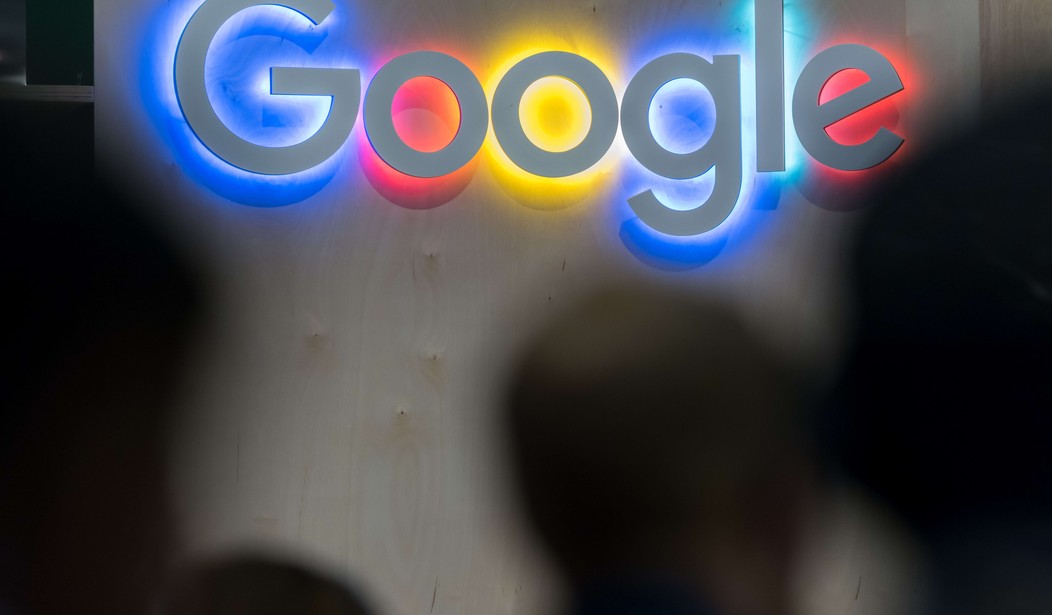A New York Times columnist admitted that Google’s secret search algorithm may prop up hidden biases, but insisted that it has no such biases against Donald Trump. In doing so, the columnist unwittingly revealed exactly how Google’s bias against conservative news outlets works.
Twisting the tentative claims of a PJ Media study that Google preferred liberal media outlets in news about Trump, the president claimed that the search engine was “RIGGED” against him. While Trump took it too far, bias at a left-leaning company like Google is quite possible, if not likely, and it need not be intentional.
Farhad Manjoo, the “State of the Art” columnist for The New York Times, admitted that structural bias plagues Google’s search algorithm. He insisted, however, that Trump is not the victim of this bias — but rather the “powerless” in society, specifically racial minorities and women.
“Google’s influence on public discourse happens primarily through algorithms, chief among them the system that determines which results you see in its search engine,” Manjoo explained. “These algorithms are secret, which Google says is necessary because search is its golden goose (it does not want Microsoft’s Bing to know what makes Google so great) and because explaining the precise ways the algorithms work would leave them open to being manipulated.”
The New York Times columnist admitted that Google’s search algorithm is hard to analyze because of this secrecy and the added fact that Google takes into account time, place, and some personalized factors. “The results you get today will not necessarily match the results I get tomorrow,” Manjoo admitted. “This makes it difficult for outsiders to investigate bias across Google’s results.”
Then the columnist made a tremendously important admission. “A lot of people made fun this week of the paucity of evidence that Mr. Trump put forward to support his claim,” Manjoo noted. “But researchers point out that if Google somehow went rogue and decided to throw an election to a favored candidate, it would only have to alter a small fraction of search results to do so. If the public did spot evidence of such an event, it would look thin and inconclusive, too.”
Huh. Yet, at the very beginning of his article, the New York Times columnist declared, “There is no basis for the charge that President Trump leveled against Google this week — that the search engine, for political reasons, favored anti-Trump news outlets in its results. None.”
How can Manjoo be so conclusive against Trump’s claim when he freely admits that if Google did so monstrous a thing as trying to “rig” an election, the evidence for it “would look thin and inconclusive?”
The New York Times columnist is likely relying on the opinions of analysts like CNN’s Chris Cillizza, who argued that Trump was promoting a “conspiracy theory.” The problem is, there is massive evidence to suggest not only that Google has a liberal culture, but that the company allows liberal bias to harm conservatives on its platforms.
James Damore, the former senior software engineer who was fired after spreading a document asking questions about the tech gender gap, is suing Google for discrimination against conservatives. Prager University is suing Google and YouTube for discrimination against conservative content. YouTube continues to restrict access to PragerU videos.
Is it really such a stretch to suggest that a company that has been taken to court over its documented liberal bias is skewing search results for liberal outlets?
Manjoo also skewed the issue by stating the claim of Google bias in too stark of terms (an error Trump himself made in his tweet on the subject). The theory that Google intentionally twisted search results against Trump is likely false, or at the very least overstated. The bias need not be intentional to be real.
When PJ Media’s Paula Bolyard released the results of her — admittedly unscientific — analysis of Google News search results for the word “Trump” — the study that found 96 percent of Google’s top results came from liberal media outlets — she also cited a far more scientific study from the SEO company “Can I Rank.” That company studied over 1,200 URLs for all sorts of political keywords and found a political slant.
“Among our key findings were that top search results were almost 40% more likely to contain pages with a ‘Left’ or ‘Far Left’ slant than they were pages from the right,” Can I Rank found. “Moreover, 16% of political keywords contained no right-leaning pages at all within the first page of results.”
Neither Paula Bolyard nor Can I Rank specifically attributed such bias to intentional skewing on the part of Google. Google need not be intentionally pulling the strings for this bias to occur, as The New York Times‘s Farhad Manjoo rightly noted.
“Google is made by humans who have preferences, opinions and blind spots and who work within a corporate structure that has clear financial and political goals,” Manjoo noted. “What’s more, because Google’s systems are increasingly created by artificial intelligence tools that learn from real-world data, there’s a growing possibility that it will amplify the many biases found in society, even unbeknown to its creators” (emphasis added).
Manjoo rightly pointed out a few very negative racist and sexist results that came up through Google’s search algorithm. The company has apologized for these results, and pledged to prevent such things in the future.
In this very article, the New York Times columnist revealed his own biases, however. He argued that “the more pressing concern is not about Google’s deliberate bias against one or another major political party, but about the potential for bias against those who do not already hold power in society.”
How did Manjoo categorize “those who do not already hold power in society?” Why, along the lines of race, class, and gender, of course. “These people — women, minorities and others who lack economic, social and political clout — fall into the blind spots of companies run by wealthy men in California.”
But hold on, who else “falls into the blind spots of … wealthy men in California?” Wouldn’t that include new media, conservatives, and Trump’s “forgotten men and women?”
Indeed, a study of Silicon Valley employees early this year found that conservatives practice self-censorship in order to avoid being detected by their liberal superiors. James Damore told PJ Media that conservatives at Google are “in the closet,” that Google employees are digging through a secret conservative mailing list, and that Googlers see southerners as “stupid.” Damore’s lawsuit also charges that Google’s culture caters to weird sexual identities, but actively discourages traditional family values.
In light of this culture, is it really a surprise that studies find some truth to Google’s bias against conservative websites? Of course, it isn’t just Google, either. Just this week, an internal memo at Facebook surfaced, criticizing that social media giant of having a liberal “political monoculture.”
The claim that Google’s algorithm favors liberal media outlets need not involve a deliberate “RIGGED” conspiracy against Trump. Societal bias may not only harm black people and women — it can also discriminate against the change agents of new media.
After the 2016 election, tech companies feared that they had played some role in electing Donald Trump, and sought to alter the way they do business to prevent “fake news” from gaining a foothold. That was a noble goal, and entirely fabricated news is indeed real.
The problem is, when it comes to fighting fake news, society has an inherent bias for the established outlets, papers like The Washington Post and The New York Times, channels like CNN, NBC, ABC, and magazines like TIME.
One of the major criticisms leveled against Paula Bolyard’s PJ Media story proved quite telling. Chris Cillizza complained that Bolyard had lumped most of these outlets into the “liberal” column. “Every major mainstream media outlet in the country — from CNN to The New York Times to the Washington Post to Bloomberg is cast as left-leaning,” he complained.
Perhaps at one time, these outlets were indeed centrist. CNN, in particular, seems to have evolved at lightning speed from a somewhat centrist outlet into a rabid anti-Trump propaganda mill. That, right there, is the problem.
So many of these outlets are, or at least have become, extremely liberal. That is their right under the First Amendment. However, society has taken some time to shift to this new — or at least more blatant — reality.
Before the 2016 election, various forms of new media on both the right and the left challenged these outlets for news leadership. Conservative outlets, in particular, started meeting unmet needs for a slant that balances out the mainstream media’s left-ward bias.
The crackdown on “fake news” slammed this conservative response, and elevated the established media outlets.
This kind of societal bias is exactly the problem Manjoo warns about. The problem is not that Google is intentionally twisting search results. The problem is that Google’s algorithm, based on public perception as it is, skews in a liberal direction — not due to some massive conspiracy, but because the search engine tried to fight “fake news,” and ended up quashing the disruptive new media outlets that were bringing balance to online discourse.
It is tragic that smart people like The New York Times‘s Farhad Manjoo cannot see the clear implications of their own writing about Google bias. Manjoo’s own bias blinds him to the fact that it’s not only black people and women who fall between the cracks of society’s biases, but conservatives as well.
Donald Trump’s claims about Google bias went too far, and Paula Bolyard has rightly called him out on this. In fact, Trump even went so far as to tweet a blatantly false attack on Google — claiming that it linked to Obama’s state of the union addresses but not to his. But media outlets do themselves and their readers a disservice by blatantly rejecting the idea that Google could be biased against conservatives.
Not only do such protestations avoid the clear context of lawsuits against Google and studies about conservatives being quashed in Silicon Valley, but they also reveal the painful blindness of liberal bias in the mainstream media — which is the very root of Google’s bias problem.
Follow the author of this article on Twitter at @Tyler2ONeil.









Join the conversation as a VIP Member